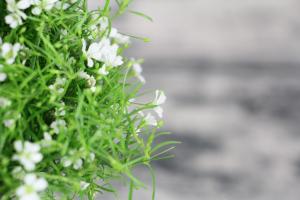Introduction
When it comes to potted plants, one of the most important factors that contribute to their health and growth is the type of fertilizer used. With so many options available on the market, it can be overwhelming to determine which fertilizer is best for your potted plants. In this article, we will discuss factors to consider when buying fertilizer and recommend some of the best fertilizers for potted plants.
Factors to consider when choosing fertilizer
There are several factors to consider when choosing a fertilizer for potted plants. These include the type of plant, the quality of soil, the composition of the fertilizer, and the fertilizer's release rate. Let's discuss each of these factors in detail.
Type of plant
Each type of plant requires specific nutrients in varying amounts. Therefore, it is essential to choose a fertilizer that caters to the needs of the specific plant species. For example, acidic-loving plants like azaleas and blueberries require an acidic fertilizer. In contrast, vegetables and herbs require a balanced fertilizer with equal amounts of nitrogen, phosphorous, and potassium.
Quality of soil
The quality of the soil also plays a significant role in determining the appropriate type of fertilizer for a potted plant. If the soil is nutrient-rich and high in organic matter, then a slow-release fertilizer with low nitrogen may be sufficient. However, if the soil is of poor quality, then a fast-acting fertilizer with high nitrogen is necessary to supplement the plant's nutrient requirements.
Composition of fertilizer
The composition of the fertilizer refers to the three primary macronutrients: nitrogen, phosphorus, and potassium. Nitrogen is essential for leaf growth, phosphorus for root growth, and potassium for overall plant health. It is crucial to choose a fertilizer with the right balance of these macronutrients, depending on the plant's requirements.
Fertilizer release rate
Fertilizers can be classified into two categories based on their release rate, namely slow-release and fast-release fertilizers. Slow-release fertilizers release nutrients slowly over time, providing a steady supply of nutrients to the plant. In contrast, fast-release fertilizers release nutrients rapidly, providing immediate nourishment to the plant. The choice of fertilizer release rate depends on the plant's needs, with some plants requiring a consistent supply of nutrients over an extended period, while others need immediate nourishment.
Best fertilizers for potted plants
Here are some of the best fertilizers for potted plants:
1. Osmocote Flower and Vegetable Plant Food
Osmocote is a slow-release fertilizer that provides essential nutrients to plants for six months. It contains equal parts of nitrogen, phosphorous, and potassium, making it suitable for a wide range of potted plants. It is also easy to use, requiring application only once in six months.
2. Miracle-Gro Indoor Plant Food Spikes
Miracle-Gro Indoor Plant Food Spikes provide a consistent supply of nutrients to plants for up to two months. It contains balanced amounts of nitrogen, phosphorous, and potassium, making it suitable for a variety of indoor potted plants. It is also easy to use, requiring insertion of the spikes into the soil at regular intervals.
3. Jobe's Organics Vegetable & Tomato Fertilizer Spikes
Jobe's Organics Vegetable & Tomato Fertilizer Spikes are slow-release fertilizer spikes that provide sufficient nutrients to vegetable and herb plants for up to eight weeks. It is made from organic materials and contains a balanced mix of nitrogen, phosphorous, and potassium. The spikes are also easy to use, with insertion into the soil at regular intervals.
Conclusion
The type of fertilizer used plays a vital role in determining the health and growth of potted plants. It is essential to consider the type of plant, quality of soil, composition of fertilizer, and fertilizer release rate when choosing the best fertilizer for potted plants. With the selection of the right fertilizer and proper application, potted plants can grow healthy and thrive for an extended period.

 how many times do yo...
how many times do yo... how many planted tre...
how many planted tre... how many pine trees ...
how many pine trees ... how many pecan trees...
how many pecan trees... how many plants comp...
how many plants comp... how many plants can ...
how many plants can ... how many plants and ...
how many plants and ... how many pepper plan...
how many pepper plan...





























